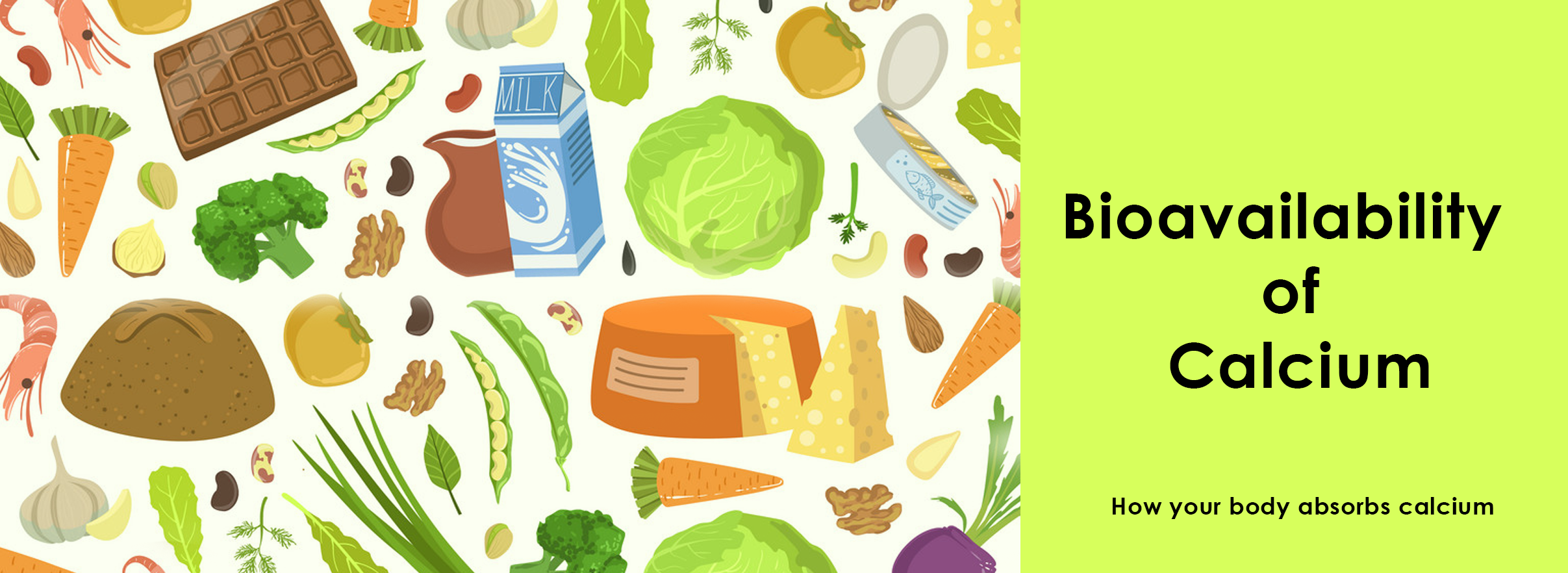Hey there Highline scholars, do you know how your body absorbs calcium, one of the important minerals for our bones? Calcium is a large mineral present in our body – it helps in strengthening bones and teeth. And although it is difficult to break it down through the digestive system, it plays a vital role in blood clotting.
Calcium bioavailability refers to the amount of calcium in a food or supplement that is absorbable and available for use by the body. It can vary depending on several factors, including the source of calcium and the other components present in the diet or supplement.
Calcium from dairy products (such as milk, cheese, and yogurt) is generally bioavailable, ensuring that a large amount of the calcium in these foods can be absorbed by the body.
Fortified plant-based milks, leafy green vegetables (such as broccoli and kale), and certain species of fish (such as salmon and sardines) are other good sources of bioavailable calcium.
Calcium bioavailability is affected by the presence of certain substances in the diet, such as phytic acid (which is found in some grains and beans), and oxalic acid (which can be found in spinach and rhubarb). These substances can bond to calcium and reduce its absorption. Vitamin D is also involved in calcium absorption.
It helps the body to absorb calcium from the intestines and promotes its incorporation into bones. For optimal calcium bioavailability, it is therefore required to have adequate vitamin D levels.
It’s worth noting that individual calcium needs will vary according to age, gender, and specific health conditions.
One prominent instructor at Highline, Dr. Baker, explained how our body restores calcium when it is required by our body with the process called bone remodeling. In which the osteoclasts (the destroyers) break old bone tissues by diffusing calcium into the bloodstream.
Although, we also do absorb calcium through the small intestine, Dr. Baker also said that if calcium is not regulated by our body then it can lead to chronic diseases. There are two hormones in our body which helps in regulating this.
The parathyroid hormone released by the parathyroid gland releases the calcium into the bloodstream to maintain the normal calcium levels. On the other hand, if calcium level is increased in our body then the calcitriol hormone secreted by the thyroid gland absorbs calcium to maintain wealthiest conditions in our body.
The deficiency of calcium can create various dangerous effects on our body. It is called hypocalcemia. It takes place when our body does not have adequate amounts of calcium. It weakens our bones, increases fatigue, cramps muscles, as well as causes abnormal heart rhythms.
Hence, it is important to consume calcium regularly to maintain an appropriate calcium level in the body.

